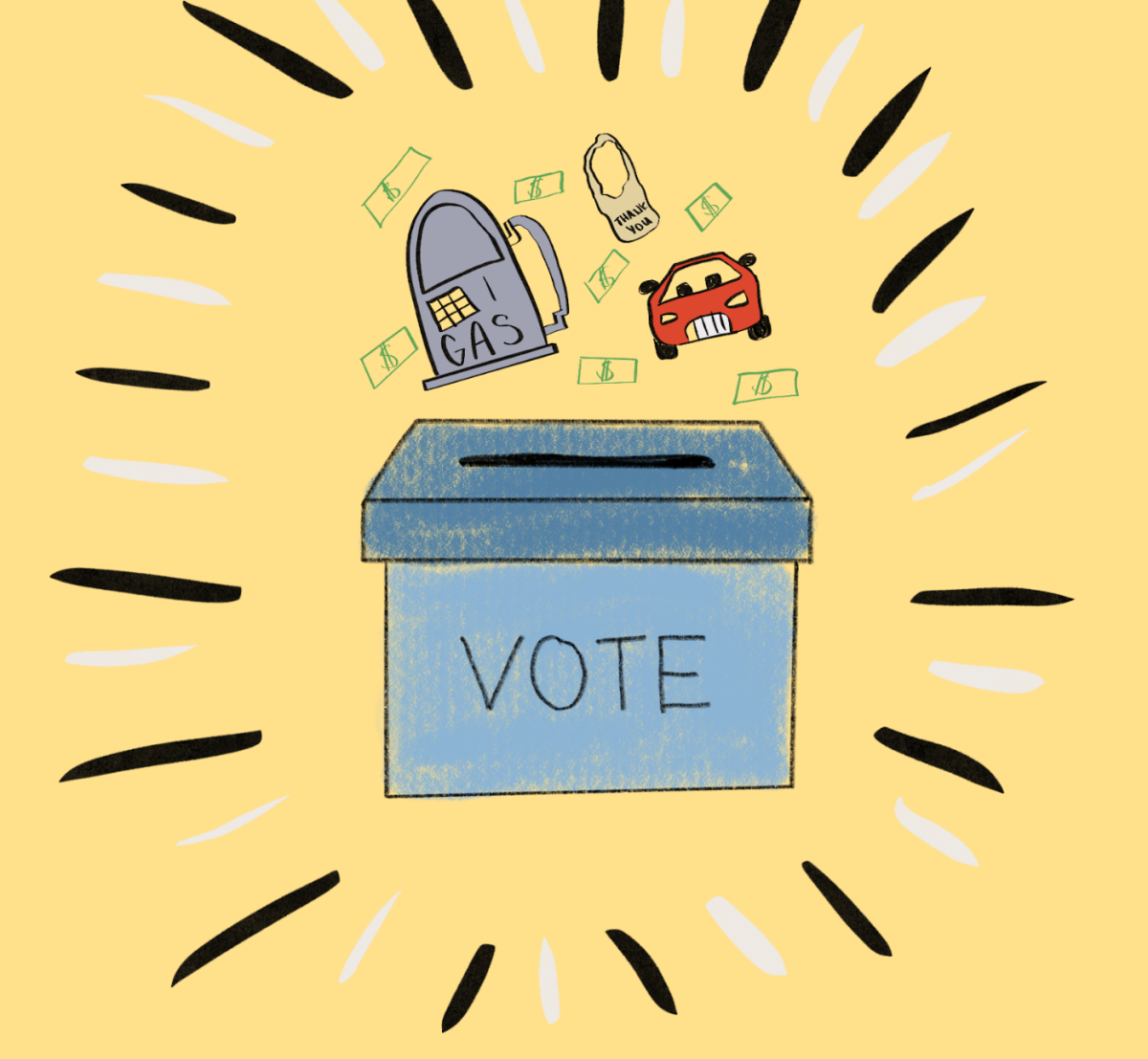Some argue that the economy has no substantiated effect on presidential elections, though throughout American history, this has proven inaccurate.
Economic voting is a perspective that argues that voter behavior is heavily influenced by the economic conditions at the time. For example, economic voting was blamed for the losses of both Jimmy Carter in 1980 and George H.W. Bush in 1992; the economy was also credited for Bill Clinton’s win in 1996.
The 2024 election is right around the corner; it will be the first election that current seniors and some juniors will be able to vote in. For that reason, understanding the economic influence on the election is critical for young people.
Currently, the economy has been stronger than in past years since COVID-19 hit. According to The National Association of Business Economics, our economy is predicted to have 2.2 percent growth after adjusting for inflation. The high interest rates that were meant to contain inflation were expected to drag down the economy, but instead the job market and household spending adapted to the changes, exceeding experts’ expectations.
While our economy has vastly improved – the GDP has grown 2.1 percent since COVID-19 – much of the public is irritated with inflation. This will be the primary issue in Biden’s 2024 re-election campaign. Rising consumer debt with a boost in interest rates will have a drastic effect on economic growth, and on the lives of almost every American, as anyone with debt will pay more interest as a result.
As the presidential campaign continues, experts predict Biden will have 270 of the 538 electoral votes, though this does not leave room for any errors. Biden would need to carry all states he took in 2020 as well as win all the states around the Great Lakes and Sun Belt.
Economic voting is solely based on how well the economy performs during the lead up to the election; though Biden made an exponential impact on the economy in a good way, many still believe that it isn’t enough. Former president Donald Trump and other members of the GOP have begun to use the perceived status of the economy against Biden. Trump, however, was the incumbent when our economy suddenly collapsed down below 9, which experts say we have successfully recovered from. To continue to strive for maximum efficiency, economists have stated that we must achieve the Fed’s Federal Open Market Committee (FOMC) goal of price stability, about 2 percent, and increasing employment.
Polling experts say it’s clear that the citizens of the United States are more concerned with the perception of the economy without considering identity, personalities, popularity, policies or unsportsmanlike behavior when making their election decisions. Considering the voice of the public, Biden’s reelection chances are getting slimmer as Trump continues to lead the way in multiple critical states:Arizona, Georgia, Pennsylvania, Michigan, North Carolina and Nevada. In a survey of these states, 48 percent support Trump, while the other 43 percent said they support Biden.
While Trump has won most of the critical states, he is trailing Biden with 122 delegates, whereas Biden currently has 205 delegates secured. Recently, Trump is projected to win by 9 points, allowing time for Biden to catch up. Ultimately, there is no clear winner at this time.






